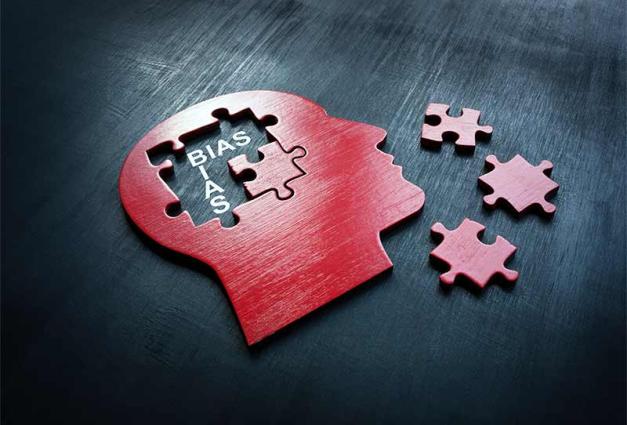Most religions emphasize values like love, kindness, and generosity. Regardless of whether you're religious or not, you have likely heard of the "Golden Rule" which states that you should treat others how you want to be treated. A version of this rule exists in most major religions. Religion seems to encourage people to treat others with kindness, generosity, and positivity, also known as prosociality. Combining the results of many studies on religion and prosocial behavior, researchers have found that prompting religious people to think about their faith tends to increase prosociality.
So why is religion also connected to behaviors and attitudes that seemingly oppose these religious values? Religion has motivated historical atrocities such as wars and massacres against people of other faiths (such as the Crusades and the St. Bartholomew's Day massacre, when several thousand people were killed during the French Wars of Religion in 1572). Researchers have found that, while religion is associated with prosociality, identifying more strongly with one's religion can be associated with racism and homophobia.
Intergroup Bias
One reason that religion may be linked to prejudiced attitudes and behaviors is intergroup bias. Intergroup bias is the tendency to think positively about groups that a person is a member of (an ingroup) while thinking more negatively about groups that a person is not a member of (an outgroup). In addition, some outgroups may seem more threatening to ingroups if they are perceived to violate ingroup values. With this in mind, the relationship between religion and both prosociality and prejudice makes more sense—prosocial behavior might be mostly directed towards ingroups, while prejudice might be directed more towards outgroups, especially outgroups that are perceived as threatening. Still, it is not clear whether religion really does increase prejudice or if there is another reason for the relationship.
Putting All the Studies Together
To find out whether religion might increase prejudice, we combined the results of psychological studies that used priming methods. Priming consists of prompting someone to think of an idea or concept in a very subtle way so that they are not (or only barely) aware that you have done so. Researchers use priming to influence people's thinking when they don't want to be too obvious about what the research is aiming at. Priming increases the awareness of a concept in the brain with the goal of measuring differences in behaviors and attitudes after the priming occurs. For example, in one type of priming method, subjects might unscramble short sentences that contain religious words. Then, participants answer questions measuring prejudice towards certain groups (Muslims as an example). Their responses are compared to a group of participants primed with neutral (non-religious) words. If religion increases prejudice, we should see higher prejudice reported in the group that was primed with religion compared to the group that was primed with neutral words.
We found a total of 44 previous studies of this sort and then, for each study, we calculated how much the priming had increased prejudice for each group being studied. These groups included women and sexual/gender minorities, atheists, people of different established religions (Muslim, Jewish, Hindu), and people of various other distinct social groups (Black, Hispanic, European, foreign, rich, poor, immigrant, and even members of a rival university).
Combining all the results, we found that priming religion is related to increased prejudice across all target groups, but the relationship is small. However, two groups of studies—on sexual/gender minorities and atheists—were large enough to examine separately. We found that the relationship between priming religion and increased prejudice was slightly larger for these two groups. These findings are consistent with past research showing that sexual/gender minorities and atheists are viewed as especially threatening to religious people, possibly because they are perceived to violate religious values. Due to intergroup bias and perceptions of threat, it makes sense that priming religion would increase prejudice, especially for these two groups.
The Take-Aways From This Research
First, it is important to note that the results are based on averages. Not all individuals are more prejudiced towards these groups when primed with religion, and some studies did not show a relationship between religious priming and increased prejudice. However, although the relationship is small, even a small effect can have widespread impacts throughout society over time. Thus, these findings provide an opportunity to further combat negative attitudes toward these groups. Recently within the U.S., there has been a rise in hate crimes and discriminatory legislation aimed at gender minority groups. If religious leaders and community members oppose prejudice towards such vulnerable groups, perhaps some of the broader, negative social effects can be mitigated.
For Further Reading
Hall, D. L., Matz, D. C., & Wood, W. (2010). Why don't we practice what we preach? A meta-analytic review of religious racism. Personality and Social Psychology Review, 14(1), 126–139. https://doi.org/10.1177/1088868309352179
Shariff, A. F. (2015). Does religion increase moral behavior? Current Opinions in Psychology, 6, 108-113.
Snell, A., Zuckerman, M., & Le, B. M. (2022). Does religious priming induce greater prejudice? A meta-analytic review. Personality and Social Psychology Bulletin, 1-13. https://doi.org/10.1177/01461672221135956
Annetta Snell is a PhD candidate in social-personality psychology at the University of Rochester. Her research interests include intergroup dynamics, religion and prejudice, and perception of God.
Miron Zuckerman is a Professor of Psychology at the University of Rochester. His research focuses on topics related to the psychology of religion and social cognition.
Bonnie M. Le is an Assistant Professor of Psychology at the University of Rochester. Her research focuses on how emotions and motivation shape well-being in interpersonal relationships.
Madison Burt is a PhD student in social-personality psychology at the University of Rochester. Her research interests include religion and prosociality, well-being, and social cognition.




